High Tech Webinars & Events
Accelerate your High Tech Innovations and design for radio, devices, network and datacenter with Ansys multiphysics solutions.
On Demand Webinars

The Era of Software-Defined Everything: Chiplets and Bespoke Silicon
From fintech to automotive, defense to healthcare, everyone wants bespoke computing platforms to build "software-defined solutions" that are differentiated in their respective markets.
The semiconductor suppliers are gearing themselves for the change, and, as Jensen Huang (NVIDIA CEO) was recently quoted, "2024 is the year where every industry is becoming a high-tech industry.”
Sign up and save your spot for this special presentation.
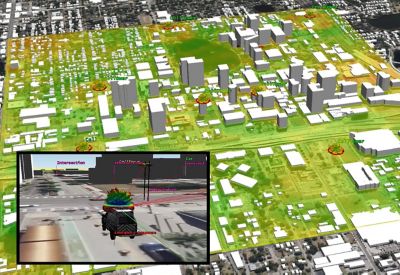
Wireless Channel Modeling for Dynamic Terrestrial Environments
Join us for this webinar on RF GaN amplifier design using electromagnetic/thermal 3D solvers. We will discuss the step-by-step process of building a GaN amplifier, beginning with the transistor model in the circuit simulator.

Design Exploration of RF GaN Amplifier, 3D Packaging, and Thermal Analysis
Join us for this webinar on RF GaN amplifier design using electromagnetic/thermal 3D solvers. We will discuss the step-by-step process of building a GaN amplifier, beginning with the transistor model in the circuit simulator.

Speed Up Your Electronic Component Design with HPC
Sign up for the last Magnetics & Consumer Electronics Design series webinar. Learn how Ansys Maxwell can provide a wealth of information to tackle complex EM computational challenges and the power of TDM in various applications. Learn how to scale computational resources efficiently.

Solve EM Fields and Forces in PCBs for Consumer Electronics
Sign up for the fifth Magnetics & Consumer Electronics Design series webinar. Learn how Ansys tools can improve PCB designs, simulate low-frequency EM fields to identify potential EMI/EMC issues, predict electric current distribution on PCBs, study EM forces generated by magnetic fields of permanent magnets, and more.

Get the Right Permanent Magnet Latching System in Portable Devices
Sign up for the fourth webinar of the Magnetics & Consumer Electronics Design series. Learn how Ansys Maxwell can perform PM modeling and analysis to further the study of motion kinematics of magnetic latching accessories.
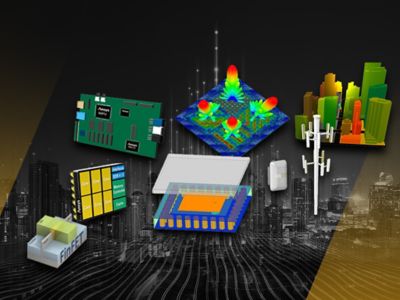
From Transistor to Wireless Communication – An End-to-End 5G/6G Workflow
Join us in the entire end-to-end workflow webinar as we unfold the design nuances of a Gallium Nitride (GaN) amplifier from a transistor model and its progression through comprehensive circuitry. Dive into Co-Simulation and multiphysics, ensuring a holistic approach to design and evaluation.

How Generative AI Impacts Product Design – A C-Suite Perspective
In the enterprise, many C-Suite executives are looking to see how they can leverage these potentially game-changing capabilities for their respective organizations. Product design is one of the emerging use cases. Although generative product design has been around for many years, most organizations sit on dormant product information assets that can improve design significantly – and there is an opportunity to use the emerging innovations linked to generative AI to create a gold mine of dynamic and accessible data to drive the next phase of product innovation.

Achieve Compact and Integrated Power Supply Designs in Consumer Electronics
Learn how to use Ansys workflow for power supply analysis, analyze compact planar magnetic transformers and reduce conducted emissions in electronic power supplies.
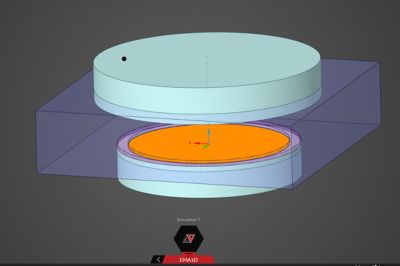
Ansys 2023 R2: Ansys Charge Plus What’s New
Ansys Charge Plus (formerly EMA3D Charge) has received some important updates in the 2023 R2 release, including integration of its PIC and CFD solvers with Ansys Chemkin-Pro, improvements to plasma and gas flow modeling, and updates to the mesh engine.
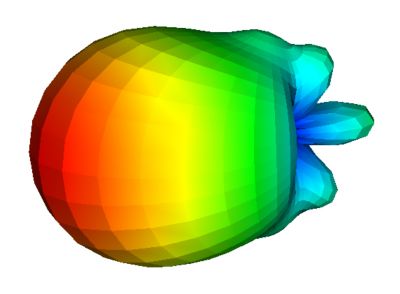
Ansys 2023 R2: Ansys EMC Plus What’s New
The 2023 R2 update to Ansys EMC Plus (formerly EMA3D Cable) includes increased mesh engine adaptability, far-field antenna emissions in platform simulations, and an automated PCB import capability.
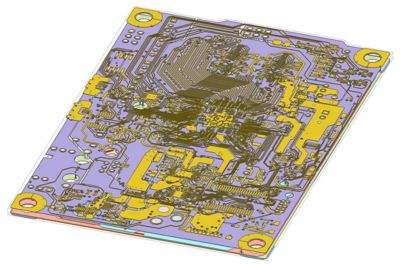
The Art of Optimizing Efficiency and Thermal Performance in Wireless Chargers
Learn how Ansys Maxwell can impact EM performance due to permanent magnets used for coil alignment, predict core and AC losses to obtain thermal performance and generate a frequency-dependent RL matrix.
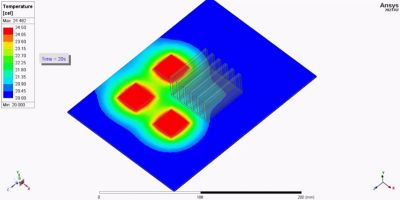
Ansys 2023 R2: Ansys Thermal Integrity What’s New
See the improvements to Ansys Icepak and Ansys Mechanical Thermal as part of the 2023 R2 update to Thermal Integrity for Electronics. Solver and meshing improvements are combined with integrations to other Ansys simulators to enhance designer modeling and simulation of electronics products from a multiphysics standpoint.
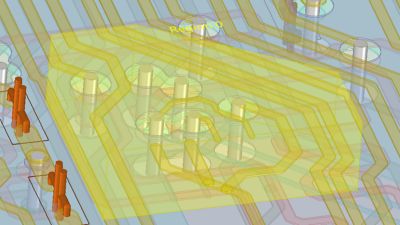
Ansys 2023 R2: Ansys HFSS, SIwave, and Q3D What’s New
The 2023 R2 update for Ansys High Frequency Electronics products is enormous. In this webinar, you’ll learn about new capabilities in HFSS for 3D Layout that bolsters electromagnetic simulation support for IC design and antenna modeling in large platforms, multiple power and thermal improvements for SIwave, and new solver and electrothermal capabilities in Q3D.

Ansys CTO Office in EMEA Presents: Modeling and Simulation for Sustainability
Sustainability decisions made early during product design affect businesses, impacting time to market, quality, and cost. Simulation is essential to solving complex engineering challenges. Take advantage of this upcoming webinar

Base-Station Antenna Placement and Operations for 5G/6G Communications
The fifth/sixth generation (5G/6G) mobile networks support the growth of many applications. From delivering a new entertainment experience, they serve as the backbone of intelligent autonomous mobility, revolutionizing healthcare and propelling manufacturing into a new era of smart connected factories and products. 5G/6G ties together billions of cellular devices, millions of autonomous vehicles, and trillions of sensors. 5G/6G will significantly increase performance and efficiency over the previous mobile networks.
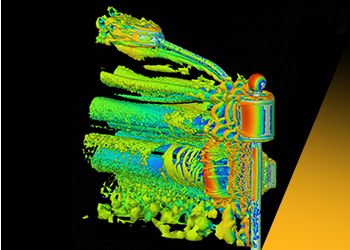
Multiphysics Analysis and Reliability for 5G/6G Antenna System Design
The fifth/sixth generation (5G/6G) mobile networks support the growth of many applications, such as new entertainment experiences, intelligent autonomous mobility, revolutionizing healthcare, and propelling manufacturing into a new era of smart connected factories. Take advantage of this antenna system Multiphysics and Design Reliability presentation for 5G/6G.
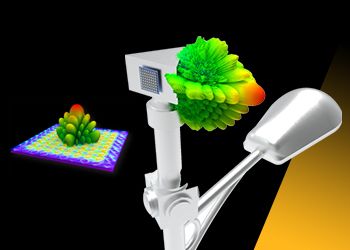
Base-Station Antenna System Design for 5G/6G Communications
The fifth/sixth generation (5G/6G) mobile networks support the growth of many applications, such as new entertainment experiences, intelligent autonomous mobility, revolutionizing healthcare, and propelling manufacturing into a new era of smart connected factories. Don't miss this presentation on antenna system design for 5G/6G.

Ansys CTO Office in EMEA Presents: AI in the Engineering Era
AI/ML turns legacy data into high-value assets, as it takes a lot of data to train AI properly. Using past simulation results and data to learn and approach new design challenges is similar to leveraging the expertise of a team of senior designers but with a more significant advantage. Sign up for this upcoming presentation.
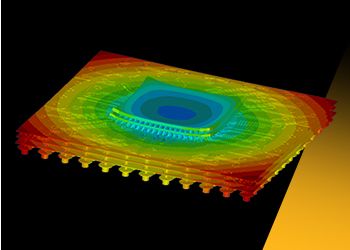
Thermal Integrity Challenges and Solutions of Silicon Interposer Design
In this latest installment of the year-long 3D-IC webinar series, Dr. Lang Lin will discuss the Thermal Integrity issues associated with 3D-IC designs. The presentation will cover thermal hotspots, mechanical stresses induced by thermal issues, and methods for capturing these problems with simulation and virtual prototyping, with a focus on designs that utilize silicon interposers.
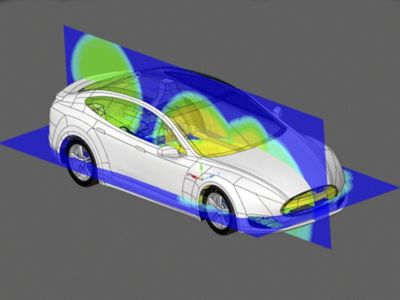
Ansys EMA3D: Workflow Platform Integrations and Multiphysics Simulation
This capstone webinar of the series shows how the solver technologies described in the previous webinars integrated into the Ansys platform and multi-physics workflows. See how the EMA3D Python Application Programming Interface (API), or pyEMA3D, allows for multi-tool workflows and optimized product designs to leverage Ansys ModelCenter.
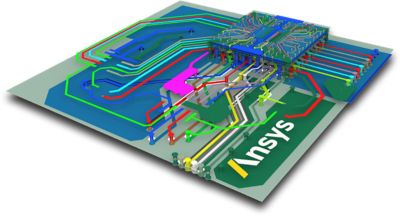
Signal Integrity Issues for Silicon Interposers
The development of applications like high-performance computing, Artificial Intelligence (AI) processors, and Central Processing Unit (CPU) and Graphical Processing Unit (GPU) chips involves advanced packaging technologies that radically alter traditional design methodologies and flows.
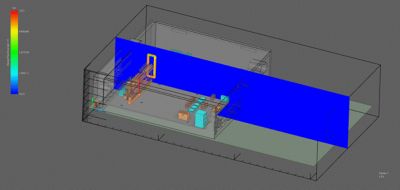
EMI and ESD Simulation of an Entire Electronic Device
This webinar, the 4th in a 5-part series, explores the use of EMA3D tools in conjunction with other Ansys computational electromagnetic simulation tools for modeling and simulating EMI effects in entire electronic systems. Integrations between EMA3D products and other Ansys tools, solver technology details, and the ability to simulate EMI and ESD effects.
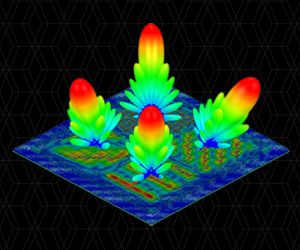
Nokia and Ansys Presents: Automated Cloud Driven Scheduling and Optimization of 5G Phased Antenna Array
This presentation will show a real 5G phased antenna array optimization workflow within the Ansys product family, where Ansys ModelCenter is the orchestrator scheduling the optimizer's design variations.
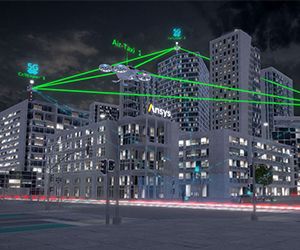
Cutting-edge Analysis of EDGE Compute Nodes & 5G
This webinar will benefit engineers, designers, operators, and analysts working in technologies such as 5G/6G, autonomous vehicle control, AR/VR applications, eVTOL, emergency communications, smart factory operation, smart cities, and large IoT systems.
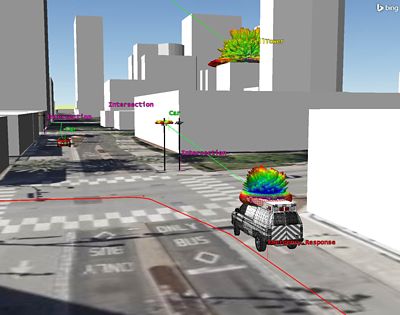
Digitally Modeling and Analyzing 5G Infrastructure Performance Across Dynamic Urban Operations
See how you can rapidly analyze and understand design trade-offs and performance impacts across the full design space during the 5G infrastructure planning journey. Don't miss this presentation to learn more about these AGI’s innovations.










